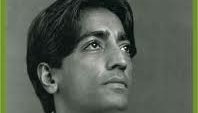|
Yoga values direct perception and discovery above all other forms of gaining knowledge. In fact it holds mere intellectual knowledge (paandityam) in relatively low esteem. Examining the world one lives in and oneself to uncover more and more subtle and fundamental aspects of the experienced reality, is central to walking the path of the Yogi.
Yogacharya Krishnamacharya has said that the practice of aasana, praanaayaama and the behavioural precepts are the building blocks that enable a person to acquire a mind capable of insight. The practice of Dhyaana is then a process of directing such a mind towards sustained enquiry. In fact about a quarter of the Yoga Sutras define the various areas in which one focuses ones mind in order to gain extraordinary understanding and capability. These areas cover a broad range with astronomy at one end of the spectrum to physical prowess on the other end. The objects of enquiry that one engages with impact and shape ones mind, therefore, Yoga advises the practitioner to choose carefully. Choose a something that touches your heart. Unless one loves the object of the enquiry and the process, one cannot sustain it. Once you make a choice persist with the enquiry. The enquiry is not meant to make one acquire skills, but to discover the more subtle and fundamental aspects that underlie the visible and gross aspects of the knowledge. An artist is not just a person with artistic talents. The person’s identity is defined by the word ‘artist’. A Gnyaani is one whose identity is defined by the depth and subtlety of the knowledge the person has internalized. Now let us return to the mind map that you drew while we were examining the idea of Dharma. Ask your self how interested and inquisitive are you about the critical elements of your world? Which are the areas you pursue with passion? Are you satisfied with merely ‘selling your skills’? When you invest in such enquiry, the benefits that will accrue to you and to the systems you are part of are obvious. A Gyaani provides the most important inputs to any groups’ functioning. A great cook who understands the relationship between food and the body is an invaluable asset to the family. All business is built upon scientific and technological excellence. What comes in the way of valuing ones curiosity? Children are extremely curious, so one has to ask oneself “where have I lost my curiosity and child like sense of wonderment?” Perhaps the single most critical factor is schooling. Most teachers do not display a passion for their subject, getting grades and becoming employable seems to be the unstated intent. The other factor that is much debated these days is the part played by the Internet. Information is available at the tips of ones fingers, but it arrives there not through ones heart and mind but through the ‘cloud’. However, I think the Internet could also be a great facilitator for one who really seeks good information. Dr. Terry Wahls (TEDx Iowa City) in her talk says that she cured herself of a life threatening disease by using the web to research the composition of food. Gnyaana : Songs of discovery and love arise from the anaahata chakra Internalizing knowledge
0 Comments
Leave a Reply. |
Raghu's BlogMy work revolves around helping individuals, groups and organizations discover their Dhamma, and become “the best they can be”. This aligns with my own personal saadhana. I have restated this question for my self as follows: “how can I be in touch with the well spring of my love for the world and my love for my self simultaneously” Archives
October 2017
Categories |

 RSS Feed
RSS Feed
